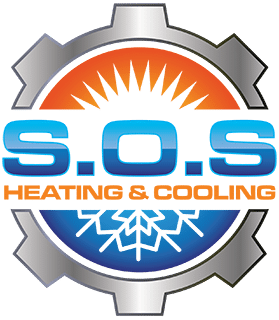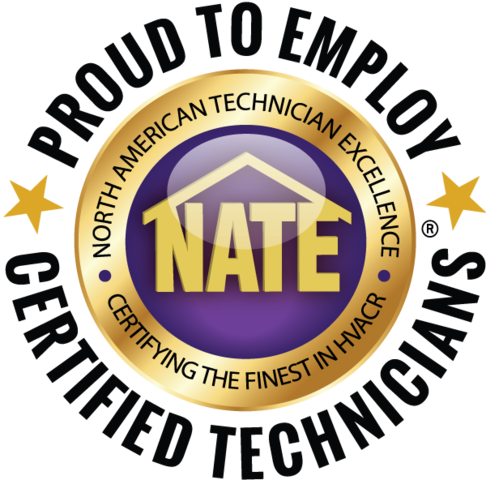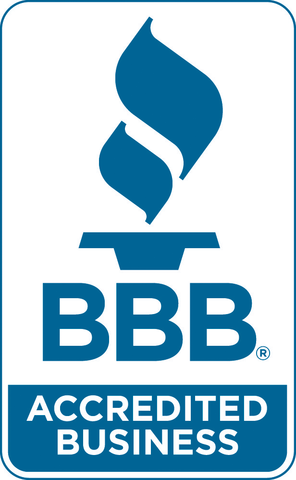The quality of the air within our homes is often an overlooked aspect of our overall well-being. Yet, indoor air quality (IAQ) directly impacts the comfort and health of our families, making it an essential element of a safe and enjoyable living environment. As a leading heating and cooling provider in Salt Lake City, we know all too well the importance of maintaining clean air in your home, and we're here to help you address indoor air quality challenges through effective professional solutions.
Many factors can impact the air quality in your home, including pollutants such as pollen, dust mites, pet dander, mold spores, and volatile organic compounds (VOCs) from cleaning products and building materials. These contaminants can lead to adverse health effects, particularly for individuals with allergies, asthma, or other respiratory conditions. Furthermore, poor indoor air quality can also negatively impact your HVAC system's efficiency, which in turn, affects your energy consumption and utility bills.
1. Understanding Indoor Air Quality Challenges
Many factors contribute to indoor air quality challenges, and understanding these elements is the first step in creating a healthier living environment. Common contributors to poor IAQ include:
- Allergens: Pollen, dust mites, and pet dander can trigger allergy symptoms and reduce overall air quality in your home.
- Mold and mildew: Damp or humid conditions can lead to mold and mildew growth, which not only impact IAQ but can also damage your property and personal belongings.
- Chemical pollutants: VOCs, found in many household products and building materials, can cause health issues and exacerbate existing respiratory conditions.
- Poor ventilation: Insufficient outdoor air exchange can result in stale air and increased indoor pollutant concentrations.
By recognizing these challenges and implementing effective IAQ solutions, you can significantly improve your home's comfort and the health of your family members.
2. Professional Solutions for Enhancing Indoor Air Quality
Our technicians offer a range of solutions tailored to address your home's specific air quality challenges. Some of the most effective options include:
- Air filters and purifiers: High-quality air filters, such as HEPA filters, can capture airborne particulates and prevent them from circulating throughout your home. Air purifiers using technologies like UV light and activated carbon can efficiently neutralize or reduce various allergens, odors, and chemical pollutants.
- Humidity control: Humidifiers and dehumidifiers help maintain a healthy indoor humidity level, which can alleviate allergy symptoms and prevent mold growth.
- Ventilation systems: Proper ventilation is essential for ensuring a constant supply of fresh, clean air. Heat recovery ventilators (HRVs) and energy recovery ventilators (ERVs) are energy-efficient options that can help maintain healthy indoor air quality without driving up energy costs.
- Duct cleaning: Over time, your home's air ducts can accumulate dust, debris, and allergens. Regular professional duct cleaning can improve IAQ by removing these contaminants from your HVAC system.
Based on your home's specific needs, our skilled professionals will recommend and implement the most appropriate solutions to enhance your indoor air quality.
3. Benefits of Improving Indoor Air Quality
Enhancing your home's indoor air quality offers numerous immediate and long-term benefits, including:
- Healthier living environment: Improved IAQ reduces the presence of allergens, pathogens, and VOCs, creating a healthier environment for your family members, particularly those with allergies, asthma, or other respiratory issues.
- Increased comfort: Proper humidity control and reduced allergens can make your living space feel more comfortable, allowing you and your family to enjoy your home more thoroughly.
- Enhanced HVAC efficiency: Removing contaminants from your HVAC system and maintaining optimal IAQ can improve the efficiency of your heating and cooling system, leading to reduced energy consumption and lower utility bills.
- Odor reduction: Eliminating mold, mildew, and other sources of unpleasant odors can make your living environment more pleasant, and can help to reduce the need for fragranced air fresheners that may contain VOCs.
By investing in professional IAQ solutions, you are supporting a cleaner, healthier, and more enjoyable home environment for your family.
4. Tips for Maintaining Optimal Indoor Air Quality
In addition to professional solutions, there are several strategies you can employ to maintain optimal indoor air quality in your home:
- Regular house cleaning: Vacuuming, dusting, and mopping regularly can help reduce allergens such as dust, pet dander, and pollen.
- Limiting chemical pollutants: Choose low-VOC or natural cleaning products and building materials to reduce your home's chemical pollutant exposure.
- Adequate ventilation: Ensure your home has proper ventilation, including exhaust fans in kitchens and bathrooms, to maintain a consistent exchange of indoor and outdoor air.
- Changing air filters: Regularly replace or clean your HVAC system's air filters to ensure optimal efficiency and air quality.
By combining these practices with professional IAQ solutions, you can create an ideal living environment for your family members to enjoy.
Conclusion: Trust our Professionals for Your Indoor Air Quality Needs
Your family's health and comfort should be a top priority, and that includes the air quality within your home. By identifying and addressing your home's specific indoor air quality challenges and investing in professional solutions, you can create a cleaner, healthier environment that supports your family's well-being.
Don't leave your home's air quality to chance – rely on our experienced professionals at S.O.S. Heating & Cooling to provide the guidance, solutions, and services necessary to ensure your living space remains clean and comfortable for your loved ones. Contact our HVAC company in Salt Lake City today to learn more about our comprehensive IAQ offerings and start enjoying the benefits of a healthier home environment.
















